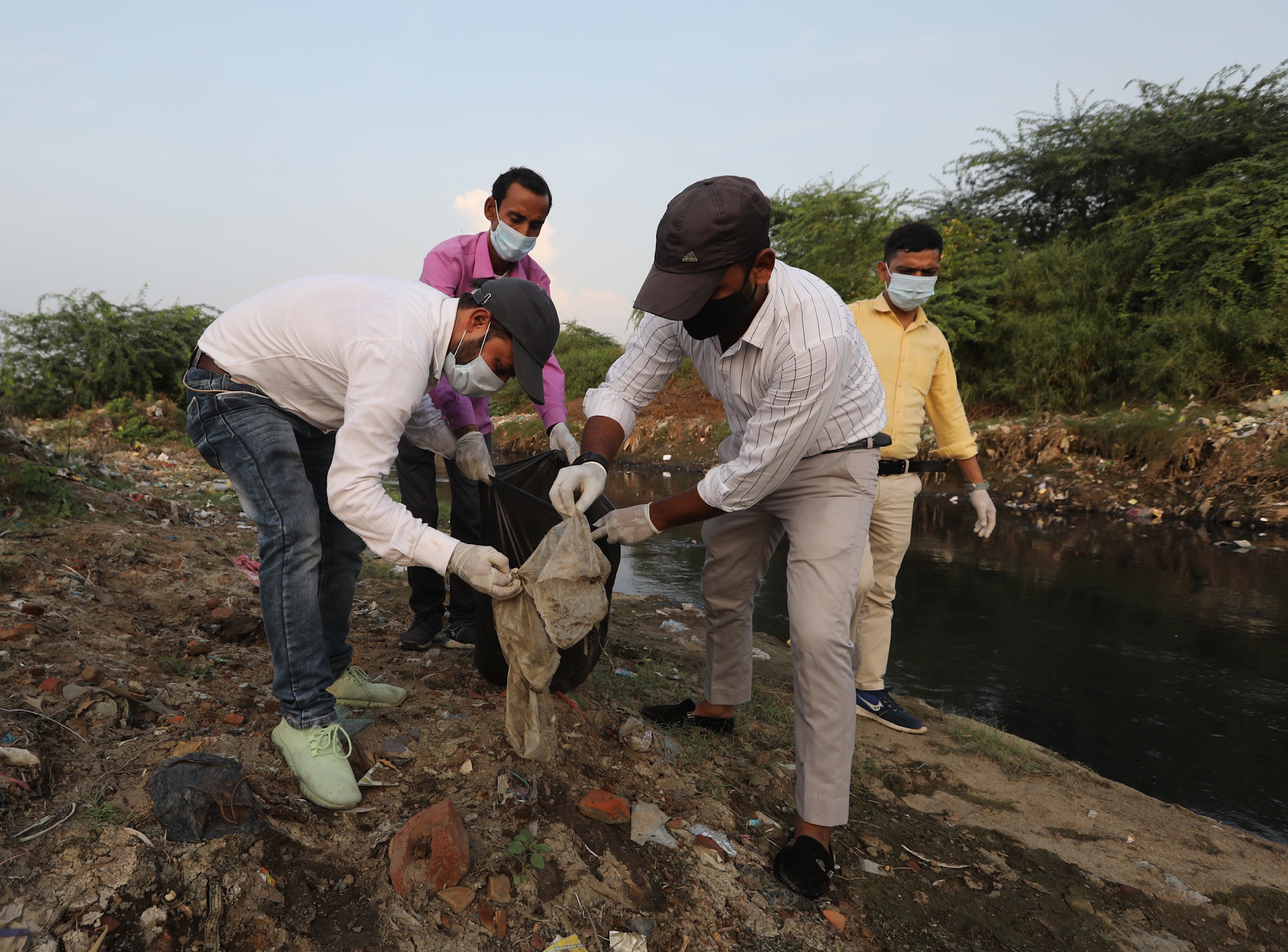|
Plastics have become an indispensable part of human lives and transformed everyday life. The present per capita consumption is over 21 million tonne in India. Rapid urbanisation and population growth are bound to increase their usage further in the years to come.
Unlike other materials, plastics do not
naturally degrade when released into the environment. Most of this
plastic disintegrates into micro fragments that are smaller than 5 mm,
known as microplastics, and further breaks down into nanoparticles (less
than 0.1 micrometre in size). They then find their way into oceans or
soils and subsequently enter the food chain, thus posing serious risks
to human and ecological health. According to UNEP, 1 million plastic
bottles are purchased every minute, while up to 5 billion single-use
plastic bags are used worldwide every year. These single-use plastics,
which comprise half of all plastic produced, have severe environmental,
social, economic and health consequences. However, while plastic
pollution is a burning issue, the use of plastics has many benefits as
it is a unique material that is cheap, versatile, lightweight, and
resistant and offers many functionalities. As rightly said, though
plastics are not inherently bad, it is what we do or do not do with them
that is important and what counts.
Therefore, plastic waste management is one of the most important environmental issues in the world that must be resolved with utmost care. Sustainable waste management can move plastics from being a pollutant to being a protector, provided it is managed and disposed of properly and is well complemented by the circular economy strategies of reuse, reduction, recycling, recovery, and responsible disposal. The large-scale impact and sustainability will only be achieved by encouraging sustainable consumption. To achieve this, the existing initiatives on policy, technology, and other fronts have to be merged with behavioural change initiatives that are directed to improve consumers’ knowledge and awareness of problems related to plastic pollution and promote changes in consumer behaviour to mitigate these problems. Understanding why successful behaviour change occurs is the key to dealing with large-scale pertaining issues. There is strong evidence to prove that sustainable behaviours impact lifestyles and help in addressing sustainability challenges. Yet much of the relevant existing research today focuses on the production side of the circular economy, with fewer studies specifically addressing the circular economy from the perspective of the consumer. This is despite consumers being often the drivers of new markets and fundamental to achieving more sustainable consumption. Hence, a concentrated effort is required in exploring factors that can act as barriers and motivators for driving behaviour change amongst the consumer, which will enable them to adopt circular economy principles for plastic waste management. One of the important ways to catalyse bahavioural change is through a wide range of education programs and awareness campaigns. These have the potential to increase consumer consciousness and inculcate a deeper understanding of the plastic problem to individual health, the environment, and overall well-being. These programs can go beyond disseminating information and involve capacity-building elements to enable a consumer, with a special focus on school children, to undertake circular plastic behaviours. If these programs are available in a wide range of languages and communicate science, i.e. the data disseminated should be well-researched and provide scientific evidence and backing, then the road to a circular plastic economy is not far ahead. In the end, we hope that rapid behavioural changes are put into action that will enable us to reach our sustainability targets and ensure a safe operating space for humanity.
References
Maj Gen Rahul Bhardwaj, VSM |
